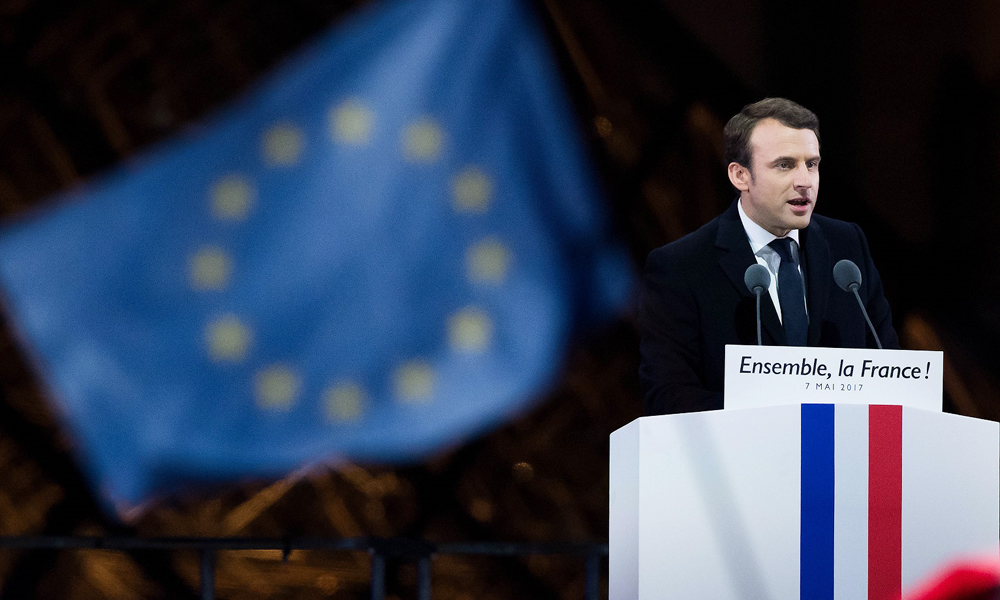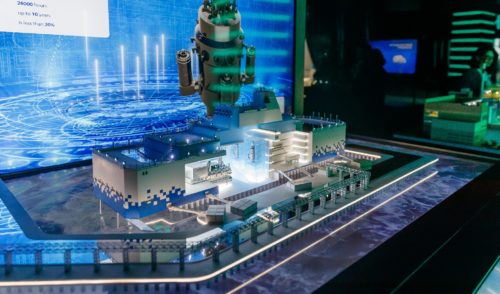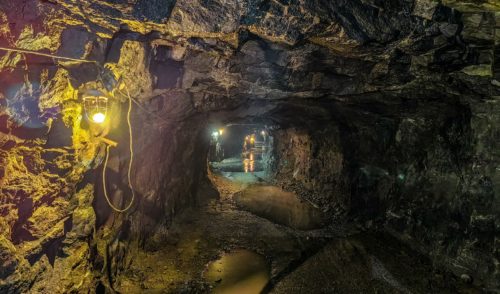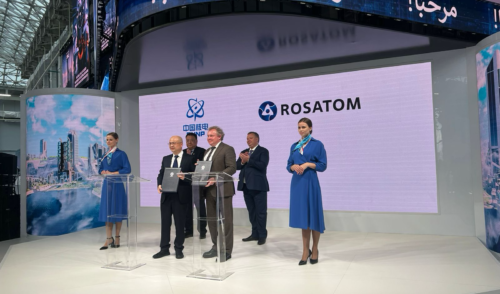
What Macron’s Presidency Holds for Nuclear Power
back to contentsThe news was published by Reuters quoting a source in Macron’s campaign headquarters. According to the source, Macron respects the government’s plans to reduce the share of nuclear power to 50% by 2025 from the current 75%, but this must be done without compromising on the country’s energy security. “The target is reduction to 50%, but the deadline may change depending on investments (resources invested),” the source said. Macron does not think it should be done necessarily by 2025, according to the source, and will be “pragmatic” about the planned reduction of nuclear generation.
The source says Macron will support the plans to go ahead with construction of the Hinkley Point C nuclear power plant with ERP reactors in the United Kingdom as this project is crucial for maintaining the French nuclear industry’s competencies.
France may also work out a national program to support nuclear construction in the same way it is done in the UK with the ‘Contract for Difference’ (CfD) scheme. The source declined to say, though, whether Macron would back Electricité de France’s request to extend the lifespan of its aging nuclear reactors beyond 40 years, saying the centrist candidate would wait for nuclear regulator ASN’s recommendation on the issue, which is expected by the end of 2018 or 2019.
He said that if France needed to build new reactors to replace existing ones, and it would have to consider new support systems because at current market prices no investor would put money into nuclear. The new scheme could be similar to the UK’s ‘Contract for Difference’ (CfD) scheme.
“We are thinking strongly about something that resembles what the British have done,” the source said.
He said there were no plans to ask EU approval for a support mechanism to upgrade existing nuclear plants, but that a CfD-like scheme could work for new plants. “The Contract for Difference has already been accepted by the European Commission, so therefore this mechanism does not pose a problem from a legal point of view,” he said.
It was too soon to go into detail about how a CfD-like mechanism would be applied in France, he said, but it could closely model the UK contract, under which a power supplier is assured a fixed price for its power.
As reported by Atominfo.Ru, Macron’s personal statements on nuclear power are rather controversial. In the summer of 2016, Emmanuel Macron, the then minister of economy, said that the nuclear industry was France’s future. “The nuclear power is our future, both in scientific and industrial terms. Nuclear power is France’s choice, the choice of the future,” Macron said at that time. By contrast, Macron confirmed at the very beginning of his presidential campaign in February 2017 that he would support the plans to reduce the share of nuclear power to 50% by 2025. He promised to shut down all coal-fired power plants in France by 2022, ban oil and gas exploration in French territorial waters, and tender out 26 GW of renewable energy capacity at the beginning of his presidential term.
Russian-French cooperation
Cooperation between Russia and France in the civil nuclear field dates back many years. It is interesting to mention that the head office of Rosatom Western Europe is located in the 8th Arrondissement of Paris, a short walk away from the head office of Electricité de France (EDF).
The first contract between the two countries was signed in 1971 for TENEX to provide uranium enrichment services to the Atomic Energy Commission (CEA). Since then France has been reliably supplied with enriched uranium products and natural uranium on a regular basis. This contract laid the groundwork for a long-term collaboration in nuclear. Since the mid-90s, Russia and France’s Areva have been jointly fabricating nuclear fuel for Western-designed reactors operating in the UK, Sweden, Switzerland, Netherlands and Germany.
Another major project exemplifying Rosatom’s cooperation with French companies is life extension of Kozloduy Unit 5 in Bulgaria. The feasibility study of the project was completed in late October 2016. To win the feasibility contract, which was signed in September 2014, Rosatom had formed a consortium with Electricité de France (EDF). According to the company, the task was performed in only 27 months, which is a record short time for a project of such a scale. In 2013, Rosatom’s subsidiary Urals Electrochemical Plant (UEP) started local production of electrical systems for foreign nuclear power projects. As a licensed partner of Schneider Electric Industries SAS, the plant is authorized to produce and distribute equipment designed by the French company. The Russian-French cooperation is not limited to equipment production and has many other aspects, such as safety of nuclear reactors, nuclear fuel fabrication, other machinery, safe transportation of nuclear and radioactive materials, emergency preparedness and response. These issues are addressed as part of broad collaboration between Rosatom and France’s Institute for Radiological Protection and Nuclear Safety (IRSN). Rosatom has also been working with the French Atomic Energy and Alternative Energies Commission across a variety of projects, including the fast breeder technology.




